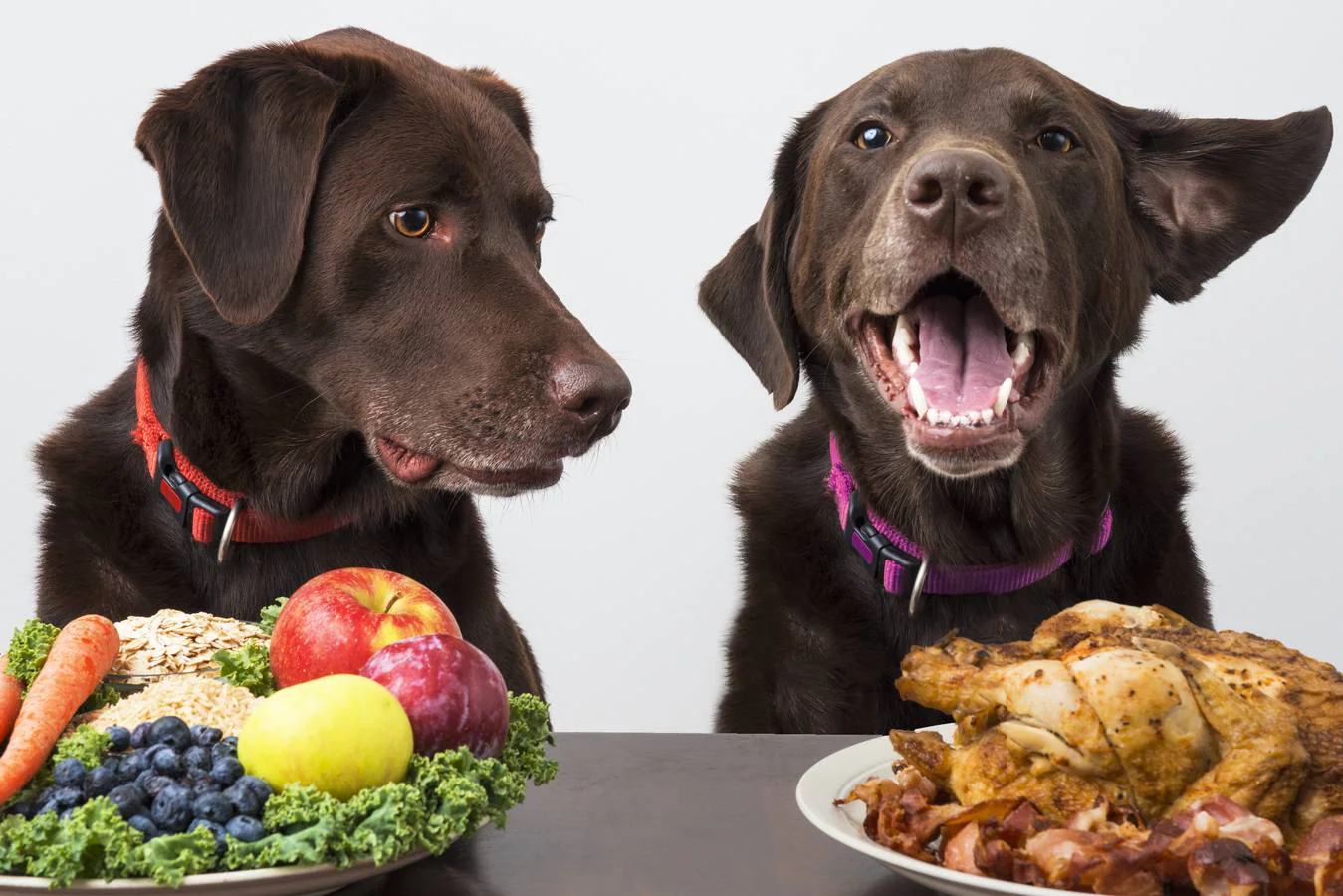Our furry friends rely on us to provide them with a safe and nutritious diet. Throughout this journey, we will provide you with essential information about which foods can be harmful to your dogs, enabling you to make informed decisions about their diet.
Top Foods to Avoid:
Here is a list of foods that you should avoid giving to your dog as they can be toxic or cause health problems. Remember, the safety and well-being of your pet should always be a priority:
Chocolate and cocoa products:
These contain theobromine, a substance that is toxic to dogs. Theobromine can cause symptoms such as increased heart rate, restlessness, vomiting, diarrhea, and even seizures or cardiac issues in severe cases. It is crucial to keep all chocolate and cocoa-based products away from dogs.
Onions and garlic
Both onions and garlic contain compounds that can damage red blood cells in dogs. This can lead to a condition called hemolytic anemia, which can cause weakness, lethargy, pale gums, and even organ damage if left untreated.
It's important to avoid feeding dogs any foods that contain onions or garlic, including powdered or processed forms.
Avocado
Avocado contains a substance called persin, which can be toxic to dogs in large amounts. While the flesh of ripe avocado is generally safe for dogs in small quantities, the pit, skin, and leaves contain higher concentrations of persin and should be avoided.
Grapes and raisins
Grapes and raisins, even in small amounts, can cause kidney failure in dogs. The exact toxic component is still unknown, and some dogs may be more susceptible than others. It's best to err on the side of caution and avoid feeding grapes or raisins to your dogs entirely.
Coffee and tea
Both coffee and tea contain caffeine, which is harmful to dogs. Caffeine affects their central nervous system and can lead to symptoms such as restlessness, rapid breathing, increased heart rate, tremors, and even seizures. It's crucial to keep all caffeinated beverages out of reach of your dogs.
Dairy products
Many dogs are lactose intolerant, meaning they lack the necessary enzyme to digest lactose, a sugar found in milk and dairy products. Feeding dogs dairy products can result in digestive upset, including diarrhea, gas, and stomach discomfort. It's best to avoid giving dogs milk, cheese, yogurt, and other dairy items.
Cooked bones
Cooked bones, such as those from poultry or meat, can be dangerous for dogs. They can splinter easily and pose a choking hazard or cause injuries to the digestive tract. It's safer to provide dogs with raw bones specifically designed for canine consumption or suitable alternatives like dental chews.
Remember, the well-being of our canine companions relies on providing them with a safe and appropriate diet. Always consult with a veterinarian regarding any specific dietary concerns or questions related to your dog's health.







0 comentarios:
Publicar un comentario